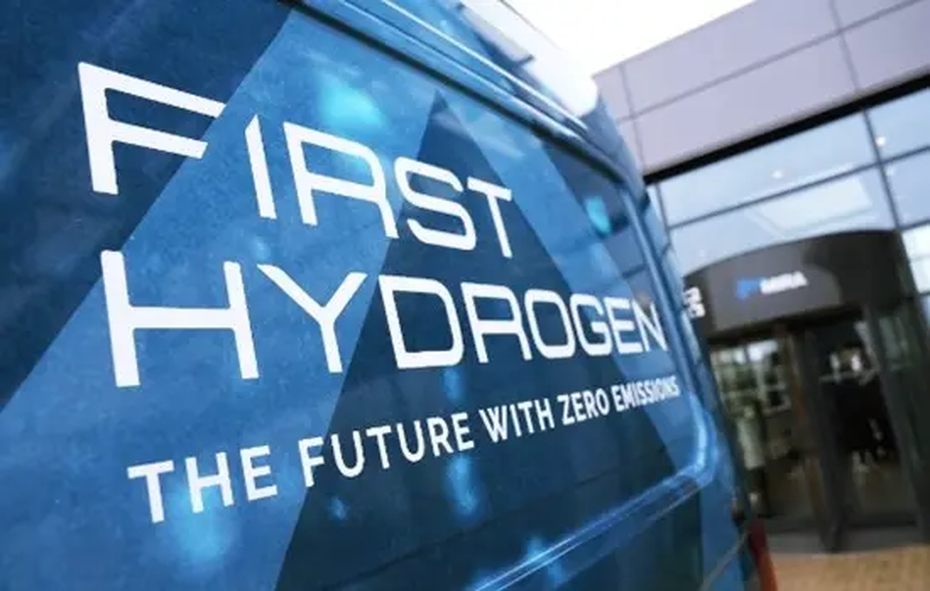
SMRs, known for their compact design, modularity, and capacity for rapid deployment, are seen as a promising technology for energy production. Unlike traditional nuclear power plants, SMRs require a smaller physical footprint, offer faster deployment timelines, and provide continuous, weather-independent power, making them well-suited to support hydrogen production.
"Integrating SMRs into our clean energy strategy is intended to support the consistent and scalable production of green hydrogen," said Balraj Mann, CEO of First Hydrogen Corp. "We believe this approach aligns with global regulatory and market trends, especially as hydrogen becomes a cornerstone of clean energy policy in both Europe and Canada."
How SMRs Can Transform Hydrogen Production
The growing focus on energy security, coupled with decarbonization mandates, has prompted governments and industry leaders to reimagine energy policy. Recognized as a key component of the European Union's clean energy strategy, hydrogen is projected to play a pivotal role in meeting decarbonization targets. First Hydrogen's exploration of SMRs is designed to support these efforts by providing a dependable supply of green hydrogen.
The potential benefits of SMR-driven hydrogen production include:
Continuous Power Supply: SMRs operate 24/7, unlike intermittent renewable sources such as wind and solar. This stability supports hydrogen production processes that require uninterrupted energy input.
Cost-Efficiency and Scalability: SMRs are modular by design, enabling First Hydrogen to adjust production capacity in response to market needs. This approach is intended to reduce capital costs and support gradual, demand-driven expansion.
Localized Deployment: SMRs can be deployed closer to hydrogen refueling stations, enabling distributed production and reducing hydrogen transportation costs.
Grid Integration: Excess power produced by SMRs can be redirected to local power grids or used to support EV charging stations, creating additional revenue streams and supporting clean energy adoption.
Reduced Carbon Footprint: SMRs generate zero greenhouse gas emissions during operation, enhancing the carbon-reduction benefits of green hydrogen production.
Continuous Power Supply: SMRs operate 24/7, unlike intermittent renewable sources such as wind and solar. This stability supports hydrogen production processes that require uninterrupted energy input.
Cost-Efficiency and Scalability: SMRs are modular by design, enabling First Hydrogen to adjust production capacity in response to market needs. This approach is intended to reduce capital costs and support gradual, demand-driven expansion.
Localized Deployment: SMRs can be deployed closer to hydrogen refueling stations, enabling distributed production and reducing hydrogen transportation costs.
Grid Integration: Excess power produced by SMRs can be redirected to local power grids or used to support EV charging stations, creating additional revenue streams and supporting clean energy adoption.
Reduced Carbon Footprint: SMRs generate zero greenhouse gas emissions during operation, enhancing the carbon-reduction benefits of green hydrogen production.
By harnessing SMRs, First Hydrogen aims to create a dual-purpose energy production system that simultaneously addresses the growing need for clean hydrogen and the stability of national power grids.
Demand and Energy Policy Shift
The urgency for energy policy reform has increased as geopolitical disruptions, fossil fuel price volatility, and climate imperatives prompt governments to prioritize energy security. Hydrogen has become a central focus of this shift, with the European Commission designating hydrogen as a cornerstone of its clean energy policy. According to publicly available data from the European Commission, the EU aims to produce 10 million tonnes of green hydrogen annually by 2030, with an additional 10 million tonnes to be imported. This strategy is part of the REPowerEU plan, which calls for accelerated decarbonization to reduce reliance on fossil fuels. SMRs are seen as an enabler of this strategy, providing a steady source of power for green hydrogen production. (EU Commission Hydrogen Strategy and REPowerRU)
In Canada, the country's National Hydrogen Strategy positions Canada as a potential global leader in hydrogen production. The adoption of SMRs is intended to support this goal, with Canada's Darlington SMR project expected to be operational by 2028. With increasing support from regulators and government agencies, the deployment of SMRs could offer First Hydrogen new opportunities to participate in the decarbonization of North America's transportation and industrial sectors.
"As policy support for hydrogen continues to accelerate in Europe and North America, we see a significant opportunity to establish a scalable, resilient hydrogen production model," added Balraj Mann. "Our approach aims to support long-term policy objectives while reducing energy volatility and improving access to clean, low-cost hydrogen."
Strategic Vision for First Hydrogen
First Hydrogen Corp. is actively pursuing a comprehensive, vertically integrated green hydrogen strategy. This strategy includes hydrogen production, refueling infrastructure, and hydrogen-powered commercial vehicles. The company's proprietary Hydrogen-as-a-Service (HaaS) model aims to offer end-to-end hydrogen solutions to fleet operators and commercial customers. The company's hydrogen-powered fuel-cell commercial vehicles (FCEVs) has already been tested in the UK, where over 6,000 km of real-world testing has been completed. The vehicles have demonstrated a range of over 630 km on a single refueling.
The addition of SMRs is expected to strengthen First Hydrogen's energy strategy, supporting a clean, distributed, and cost-effective hydrogen economy.